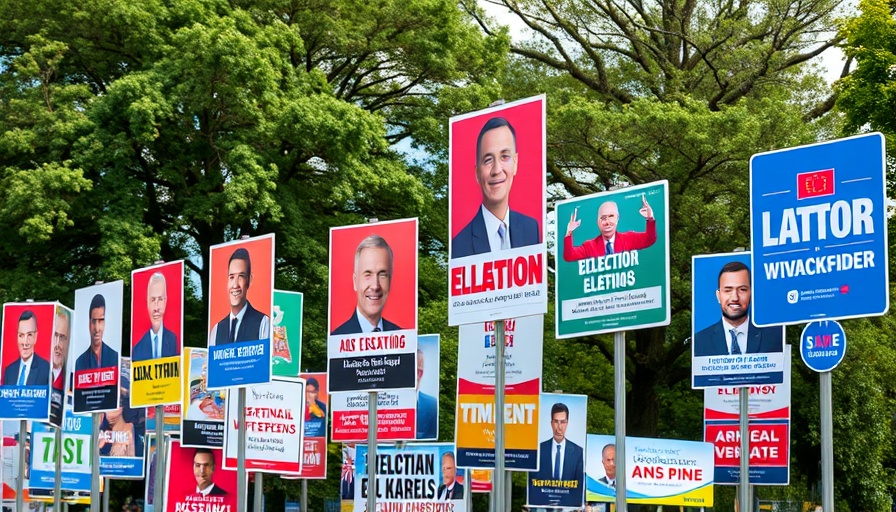
Political Landscape Shifting: ANC and DA Under Scrutiny
The African National Congress (ANC) has recently dismissed suggestions that the Democratic Alliance (DA) is poised to overtake them as South Africa's largest political party. This claim arises in tandem with the Institute of Race Relations (IRR) asserting that the DA is in a favorable position ahead of critical elections in 2024 and 2026. Such contrasting perspectives highlight not only tensions within the current coalition government but also the evolving dynamics of South African politics.
The Coalition Conundrum: What Does It Mean for Voters?
The notion of a ‘Government of National Unity’ (GNU) has been framed by some as a necessary step towards ensuring stability inSouth Africa’s tumultuous political arena. However, skepticism remains among voters, as seen through the ANC’s swift dismissal of the DA’s potential as an emerging frontrunner. Public sentiment is particularly nuanced during this period of political realignment, and the push for electoral reform might be necessary to maintain voter trust and engagement.
Contrasting Views: DA’s Rising Visibility vs. ANC’s Established Authority
John Steenhuisen, the DA leader, faces both an uphill battle and a potential breakthrough, as the party gears up for upcoming elections. The perception of the DA's rise highlights a growing voter discontent with the ANC, particularly in light of ongoing challenges such as service delivery failures, economic inequality, and corruption scandals linked to past leaderships, including figures like Jacob Zuma. The ability of opposition parties to attract voters here is crucial, especially given concerns surrounding human rights and freedom of speech in the current climate.
Historical Context: Impacts of Coalition Dynamics
Historically, coalition governments in South Africa have been fraught with challenges. The ANC, once the dominant force, might find itself navigating a landscape that increasingly accommodates multiple voices and parties. With the ANC having to manage not just its internal divisions but also its relationship with coalition partners like the EFF and MK parties, the path forward is uncertain. Issues of land reform and expropriation without compensation could also become pivotal in shaping voter sentiments as the ANC seeks to retain its foothold.
Future Predictions: What Lies Ahead for the ANC and DA?
The shifting allegiances and potential fracturing of traditional voter bases foretell an upcoming election landscape that could differ drastically from past elections. Should the DA successfully leverage the public concern over the ANC's governance, we may see an unprecedented challenge to the status quo. Moreover, issues like youth unemployment, crime prevention, and gender-based violence will likely influence voter turnout and party support closer to the elections. Polling must be interpreted within this complex socio-political backdrop, and as Thandi Modise analyzes, the predictions may not stay constant as parties reposition themselves.
Call to Action: Stay Informed and Engaged
As the political climate in South Africa evolves, staying informed becomes ever more critical. Citizens must engage with these dynamics to understand how potential changes in leadership might impact their daily lives. Support independent reporting that holds political figures accountable while providing vital insights into these unfolding events.
 Add Row
Add Row  Add
Add 




Write A Comment